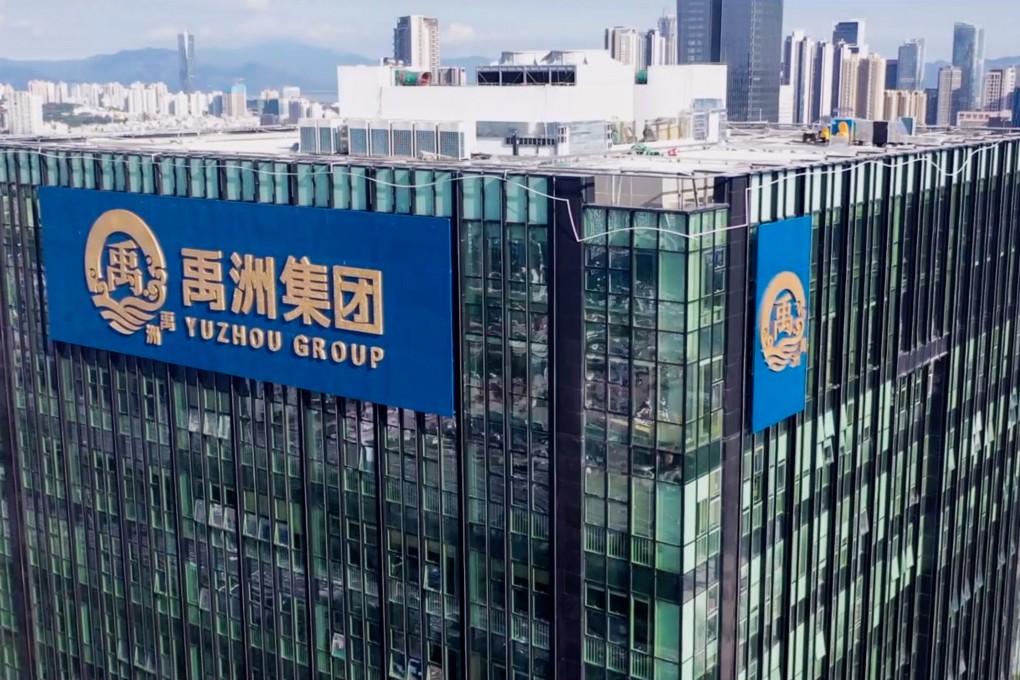Advertisement
Chinese developers speed up asset sales to state firms amid prolonged debt crisis
- Hong Kong-listed Yuzhou Group to sell property management services company for US$168 million to subsidiary of China Resources Mixc, which is controlled by state-owned China Resources Land
- Chinese high-yield dollar bonds fell for 10th straight day, Hang Seng Properties Index dropped 1.7 per cent in morning trading on Wednesday
Reading Time:2 minutes
Why you can trust SCMP
1

China’s private property developers have accelerated the sales of assets to state-owned enterprises (SOEs) amid a deepening debt crisis, despite the recent easing measures introduced by the government.
Hong Kong-listed Yuzhou Group Holdings said late on Tuesday that it had entered a formal agreement with a subsidiary of China Resources Mixc, which is controlled by state-owned China Resources Land, to sell its property management services company for 1.06 billion yuan (US$168 million).
The announcement came after Yuzhou said the same day that its bond due in 2023 was suspended from Wednesday, as it had missed a coupon payment for the notes.
Advertisement
The increase in asset sales by private developers comes as their debt problems continue to drag on. The spillover to the financial markets has also been prolonged, as their bond and stock prices have slumped. These companies have been affected by tightened property regulations including the “three red lines”, which are thresholds on borrowing outlined by the central government in August 2020.
Last year, highly leveraged players’ debt problems took centrestage during an onshore deleveraging campaign. It started in the first half of 2021, when a few home builders including Sichuan Languang Development missed bond payments. Then a US$310 billion debt crisis emerged in August at China Evergrande Group, the world’s most-indebted developer. The crisis then extended to healthier firms such as Sunac China Holdings and Logan Group, as investor sentiment became fragile.
Advertisement
Chinese developers face piling debt, with around US$118.5 billion in offshore bond payments coming due this year, according to Fitch Ratings.
Advertisement
Select Voice
Select Speed
1.00x